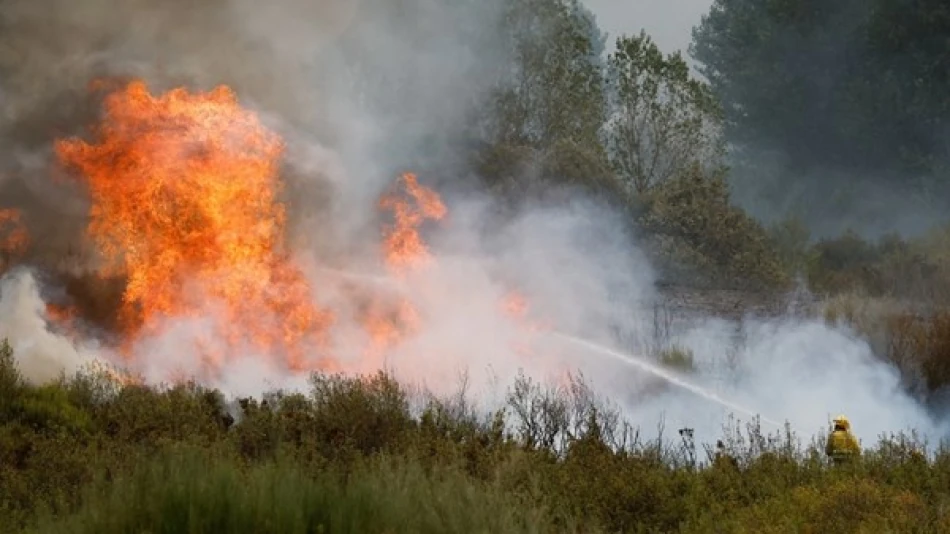
New Wildfires Blaze Through Portugal and Spain, Sparking Concerns
Iberian Peninsula Faces New Wildfire Crisis as Climate Change Intensifies Fire Season
Portugal and Spain are battling fresh wildfires that have erupted across both countries, forcing hundreds of firefighters back into action just weeks after the worst fire season in years. The new blazes underscore how climate change is extending and intensifying Europe's traditional fire season, creating a year-round threat that challenges existing emergency response frameworks.
Portugal Deploys 600 Firefighters as Largest Fire Spreads
In Portugal's central Seia region, over 600 firefighters are combating the country's largest active wildfire, fueled by powerful winds that have forced multiple road closures. Civil protection authorities have prioritized protecting residential areas, while police have arrested a suspect believed responsible for starting the blaze.
This latest outbreak comes after Portugal recorded its worst fire damage since 2017, with blazes in August alone killing four people and consuming 254,000 hectares of forest and farmland. The country experienced its hottest and driest summer since 1931, according to national meteorological data, creating tinderbox conditions that have extended the traditional fire season well into autumn.
Spain Reactivates Emergency Protocols Despite Recent All-Clear
Spanish authorities have implemented precautionary measures in the northwestern village of Castromil following a new fire outbreak, while strong winds have reignited a previously contained blaze in the Castile and León region. The timing is particularly concerning, as Spain had lifted its weeks-long state of emergency just last week after containing one of its worst fire seasons in recent memory.
Spain's summer fire crisis claimed four lives and destroyed over 300,000 hectares, highlighting the growing inadequacy of seasonal firefighting approaches in an era of climate-driven extreme weather.
A New Reality for European Fire Management
The Iberian Peninsula's fire crisis reflects a broader European trend toward year-round wildfire risk. Unlike traditional Mediterranean fire seasons that peaked in July and August, climate change is creating conditions for major blazes well into October and November. This shift forces governments to maintain expensive firefighting resources longer and challenges assumptions about when communities are most vulnerable.
Economic and Environmental Toll Mounts
The combined destruction of over 554,000 hectares across both countries represents not just environmental devastation but significant economic losses. Portugal and Spain's forestry sectors, tourism industries, and agricultural communities face mounting costs from both immediate fire damage and long-term ecosystem recovery.
The recurring pattern of record-breaking fire seasons suggests that both countries must fundamentally rethink their approach to wildfire prevention and response. Current strategies, designed for predictable seasonal patterns, appear increasingly inadequate as climate change creates unprecedented fire weather conditions throughout much of the year.
Looking Ahead: Infrastructure and Policy Implications
These latest fires demonstrate that European fire management must evolve beyond reactive emergency response toward proactive landscape management and community resilience. The arrest of an arson suspect in Portugal also highlights the human factor in fire ignition, suggesting that enhanced monitoring and prevention efforts could reduce some risks even as climate conditions worsen.
For the European Union, the Iberian crisis underscores the urgent need for expanded cross-border firefighting cooperation and investment in fire-resistant infrastructure, as extreme weather events increasingly ignore national boundaries.
Most Viewed News

 Layla Al Mansoori
Layla Al Mansoori






